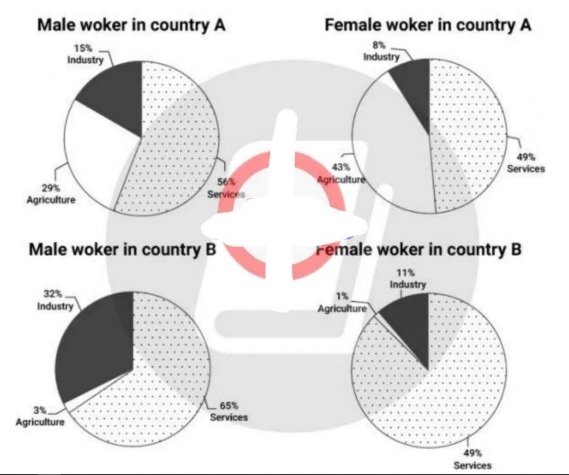Recent IELTS Exam 3rd June 2023 India

Recent IELTS Exam 3rd June 2023 India. Are you one of them searching for updates and free IELTS Coaching Online and answers for the IELTS Recent Exams?
Passage 1: The History of Guitar
Passage 2: Happiness and Misery
Passage 3: Cluster of IT Companies
1. NOT GIVEN
2. TRUE
3. Not Given
4. NOT GIVEN
5. True
6. False
7. CHATAR
8. BODY
9. VOLUME
10. AMERICA
11. STEEL
12. PICKUPS
13. GIBSON
14. E
15. A
16. D
17. B
18. G
19. F
20. A
21. E
22. A
23. B
24. SIZE
25. OPPORTUNITIES
26. SKILLS
27. H
28. G
29. F
30. A
31.
32. C
33. H
34. E
35. CANDY
36. DEPRESSION
37. CATASTROPHIC
38. CORTES
39. LANDSCAPES
40. B
1. BIRDS
2. TENT
3. MOUNTAINS
4. SWIM
5. WATERFALL
6. CAVE
7. DACK
8. WALKING BOOTS
9. DISCOUNT
10. INSURANCE
11. F
12. H
13. E
14. G
15. C
16. D
17. A
18. A
19. C
20. B
21. C
22. A
23. B
24. A
25. C
26. G
27. D
28. A
29. F
30. C
31. TRANSPORT
32. CLEANED
33. INFORMATION
34. DOCTORS
35. BONUS
36. VISITORS
37. COMMUNICATION
38. SLEEP
39. PLASTIC
40. PLANNING
The charts below show the percentage of male and female workers in country A and country B. Summarize the information by selecting and reporting the main features and make comparisons where relevant.

The bar charts present data on the distribution of male and female employees across three sectors (industry, agriculture, and services) in country A and country B.
Overall, services have the highest proportion of employment in both countries, while industry is the least popular sector in country A, and agriculture is less common in country B.
In country A, a significant portion of the workforce is engaged in services, with 56% of male workers and 49% of female workers involved in this sector. In agriculture, the percentage of female workers surpasses that of male workers, accounting for 43% and 29% respectively. Furthermore, the industry sector has the lowest number of workers, regardless of gender.
In country B, services employ the largest proportion of both male and female workers, with figures reaching 65% and 88% respectively. Conversely, agriculture has a relatively small share of employment, with only 3% of male workers and 1% of female workers engaged in this sector. Moreover, the industry sector in country B attracts more male employees compared to female employees.
Essay 1 (Agree):
I strongly agree that childcare training courses should be mandatory for all parents. Raising a child is a complex task that requires knowledge and skills to ensure the child’s well-being and development. These courses provide invaluable guidance on important aspects of childcare, such as nutrition, safety, and early education.
For instance, parents who undergo such training will learn about age-appropriate nutrition, reducing the risk of childhood obesity. Moreover, they will be equipped with essential knowledge about child safety, preventing accidents, and creating a secure environment. Additionally, these courses can enhance parents’ understanding of child psychology and effective communication techniques, fostering healthier parent-child relationships.
By making childcare training mandatory, we can promote the overall well-being of children and minimize the occurrence of preventable accidents. Moreover, parents can gain confidence in their parenting abilities, leading to more fulfilling relationships with their children. Ultimately, these courses would empower parents to provide the best care and upbringing for their children.
Essay 2 (Disagree):
While childcare training courses offer valuable knowledge and skills, I disagree with the notion that they should be mandatory for all parents. Mandating such courses would undermine parents’ autonomy and overlook the fact that parenting is a deeply personal and unique experience.
Every child is different, and parents often have their own cultural, social, and individual approaches to parenting. Mandatory training could impose a one-size-fits-all model, disregarding the diverse needs and preferences of families.
Moreover, some parents may already possess adequate knowledge and experience to raise their children effectively. Forcing them to attend training could be burdensome and unnecessary.
Instead of making childcare training courses mandatory, governments should focus on making these courses readily available and accessible to those who wish to participate. Providing resources and support for interested parents would encourage self-improvement and ensure that the necessary information is accessible to those who seek it.
Essay 3 (Agree):
I agree that childcare training courses should be mandatory for all parents, as they can play a vital role in ensuring the well-being and development of children. While parenting is a deeply personal experience, it is crucial to equip parents with the necessary knowledge and skills to provide the best care for their children.
These courses can educate parents about various aspects of childcare, including health, safety, and early education. For instance, they can learn about the importance of immunizations, nutrition, and proper hygiene practices to safeguard their child’s health. Additionally, training courses can address common parenting challenges, such as discipline strategies and promoting positive behavior.
Furthermore, mandatory childcare training courses would help address issues of child neglect and abuse. Parents who receive proper guidance and support are less likely to engage in harmful parenting practices, ensuring the safety and well-being of their children.
By making these courses mandatory, societies can promote a collective responsibility towards child rearing and ensure that parents are equipped with the necessary tools to raise happy and healthy children.






Hi, Neat post. There is a problem with your site in internet explorer, would check this… IE still is the market leader and a good portion of people will miss your great writing because of this problem.
I enjoy the efforts you have put in this, thanks for all the great posts.
very good post, i certainly love this web site, carry on it
I love your writing style truly loving this web site.
This web site is really a walk-through for all of the info you wanted about this and didn’t know who to ask. Glimpse here, and you’ll definitely discover it.
You are my breathing in, I own few blogs and occasionally run out from to post : (.
Thanks for your marvelous posting! I quite enjoyed reading it, you happen to be a great author.I will ensure that I bookmark your blog and will eventually come back sometime soon. I want to encourage you to definitely continue your great job, have a nice day!
I like what you guys are up too. Such clever work and reporting! Carry on the excellent works guys I have incorporated you guys to my blogroll. I think it will improve the value of my web site :).
I do agree with all the concepts you’ve offered for your post. They’re very convincing and will definitely work. Still, the posts are very quick for beginners. May you please extend them a little from subsequent time? Thank you for the post.
Its great as your other blog posts : D, regards for posting. “What makes something special is not just what you have to gain, but what you feel there is to lose.” by Andre Agassi.
I view something really special in this web site.
Thank you for the auspicious writeup. It in fact was a amusement account it. Look advanced to far added agreeable from you! By the way, how could we communicate?
I reckon something genuinely interesting about your weblog so I saved to fav.
An interesting discussion is worth comment. I think that you should write more on this topic, it might not be a taboo subject but generally people are not enough to speak on such topics. To the next. Cheers
I like what you guys are up also. Such intelligent work and reporting! Keep up the superb works guys I’ve incorporated you guys to my blogroll. I think it’ll improve the value of my site 🙂
I like what you guys are up also. Such intelligent work and reporting! Keep up the superb works guys I have incorporated you guys to my blogroll. I think it will improve the value of my website 🙂
I’d always want to be update on new articles on this site, saved to bookmarks! .
Merely wanna state that this is extremely helpful, Thanks for taking your time to write this.
I like this website because so much useful stuff on here : D.
It?¦s in point of fact a nice and helpful piece of info. I?¦m satisfied that you shared this helpful info with us. Please stay us up to date like this. Thank you for sharing.
You made some first rate points there. I appeared on the web for the problem and located most individuals will go together with along with your website.
Way cool, some valid points! I appreciate you making this article available, the rest of the site is also high quality. Have a fun.
I like what you guys are up too. Such smart work and reporting! Keep up the excellent works guys I’ve incorporated you guys to my blogroll. I think it will improve the value of my website :).
I always was concerned in this topic and stock still am, thankyou for putting up.
I truly enjoy studying on this web site, it holds wonderful posts. “And all the winds go sighing, For sweet things dying.” by Christina Georgina Rossetti.
I believe other website proprietors should take this website as an example , very clean and fantastic user genial style and design.
You have remarked very interesting points! ps decent site.
Greetings! Very helpful advice on this article! It is the little changes that make the biggest changes. Thanks a lot for sharing!
Dead pent subject material, Really enjoyed reading through.
hi!,I like your writing very much! share we communicate more about your article on AOL? I require a specialist on this area to solve my problem. May be that’s you! Looking forward to see you.
Outstanding post, you have pointed out some superb points, I too believe this s a very fantastic website.
I saw a lot of website but I think this one holds something extra in it in it
As a Newbie, I am always exploring online for articles that can benefit me. Thank you
Thanks , I’ve recently been looking for info about this topic for a while and yours is the best I’ve came upon so far. But, what in regards to the conclusion? Are you sure about the supply?
Fantastic website. A lot of useful information here. I am sending it to some buddies ans also sharing in delicious. And naturally, thank you on your effort!
I was reading some of your articles on this site and I think this internet site is really informative! Retain putting up.
I rattling thankful to find this site on bing, just what I was searching for : D as well saved to fav.
Some genuinely nice and utilitarian info on this site, too I think the style contains superb features.
Wow! Thank you! I continually wanted to write on my site something like that. Can I implement a part of your post to my blog?
Thanks for some other excellent post. The place else could anybody get that kind of info in such an ideal approach of writing? I’ve a presentation subsequent week, and I am on the search for such info.
It is truly a nice and helpful piece of information. I am happy that you simply shared this helpful information with us. Please keep us up to date like this. Thank you for sharing.
Outstanding post, I conceive blog owners should learn a lot from this web site its very user friendly.
Thanks a bunch for sharing this with all folks you actually recognise what you’re speaking approximately! Bookmarked. Please additionally discuss with my website =). We may have a hyperlink trade contract between us!
I¦ll immediately grab your rss feed as I can not in finding your e-mail subscription hyperlink or newsletter service. Do you’ve any? Please permit me recognise in order that I may subscribe. Thanks.
Hello, you used to write fantastic, but the last few posts have been kinda boring?K I miss your tremendous writings. Past few posts are just a bit out of track! come on!
I really like your writing style, superb information, thanks for putting up :D. “Kennedy cooked the soup that Johnson had to eat.” by Konrad Adenauer.
Hello my friend! I wish to say that this article is amazing, nice written and include approximately all vital infos. I’d like to see more posts like this.
We are a gaggle of volunteers and opening a brand new scheme in our community. Your site provided us with valuable information to paintings on. You’ve done a formidable process and our whole neighborhood will likely be thankful to you.
You made some good points there. I did a search on the topic and found most guys will approve with your site.
Howdy, i read your blog occasionally and i own a similar one and i was just curious if you get a lot of spam remarks? If so how do you protect against it, any plugin or anything you can advise? I get so much lately it’s driving me crazy so any help is very much appreciated.
Woh I love your blog posts, saved to favorites! .
Superb post however , I was wondering if you could write a litte more on this subject? I’d be very thankful if you could elaborate a little bit more. Kudos!
excellent submit, very informative. I ponder why the other specialists of this sector do not notice this. You should proceed your writing. I’m confident, you have a great readers’ base already!
Hello.This article was really interesting, particularly because I was investigating for thoughts on this matter last Thursday.
I believe this site has got some very wonderful information for everyone :D. “Believe those who are seeking the truth doubt those who find it.” by Andre Gide.
I have recently started a web site, the information you provide on this website has helped me greatly. Thank you for all of your time & work.
I think this is among the such a lot vital info for me. And i am happy studying your article. But should observation on some normal issues, The web site style is wonderful, the articles is truly great : D. Just right activity, cheers
Great work! This is the type of info that should be shared around the internet. Shame on the search engines for not positioning this post higher! Come on over and visit my web site . Thanks =)
Howdy just wanted to give you a quick heads up. The text in your post seem to be running off the screen in Safari. I’m not sure if this is a formatting issue or something to do with internet browser compatibility but I figured I’d post to let you know. The style and design look great though! Hope you get the problem solved soon. Many thanks
I truly enjoy reading through on this web site, it has got good posts.
Your style is so unique compared to many other people. Thank you for publishing when you have the opportunity,Guess I will just make this bookmarked.2
Thanks , I’ve just been searching for info about this topic for ages and yours is the best I have discovered so far. But, what about the bottom line? Are you sure about the source?
You are my aspiration, I possess few web logs and rarely run out from to post .
magnificent points altogether, you simply gained a new reader. What would you recommend about your post that you made some days ago? Any positive?
Hello, you used to write fantastic, but the last several posts have been kinda boringK I miss your great writings. Past several posts are just a bit out of track! come on!
Hi there, I discovered your website via Google at the same time as looking for a comparable topic, your site got here up, it appears to be like good. I’ve bookmarked it in my google bookmarks.
Great line up. We will be linking to this great article on our site. Keep up the good writing.
I really like your blog.. very nice colors & theme. Did you make this website yourself or did you hire someone to do it for you? Plz answer back as I’m looking to construct my own blog and would like to find out where u got this from. appreciate it
I want looking at and I conceive this website got some truly useful stuff on it! .
You got a very wonderful website, Glad I noticed it through yahoo.
Would you be curious about exchanging hyperlinks?
Just what I was searching for, appreciate it for putting up.
Enjoyed reading this, very good stuff, thanks.
Real great information can be found on blog.
I was studying some of your articles on this website and I conceive this internet site is very informative ! Continue posting.
I am impressed with this internet site, really I am a big fan .
Loving the info on this website , you have done great job on the blog posts.